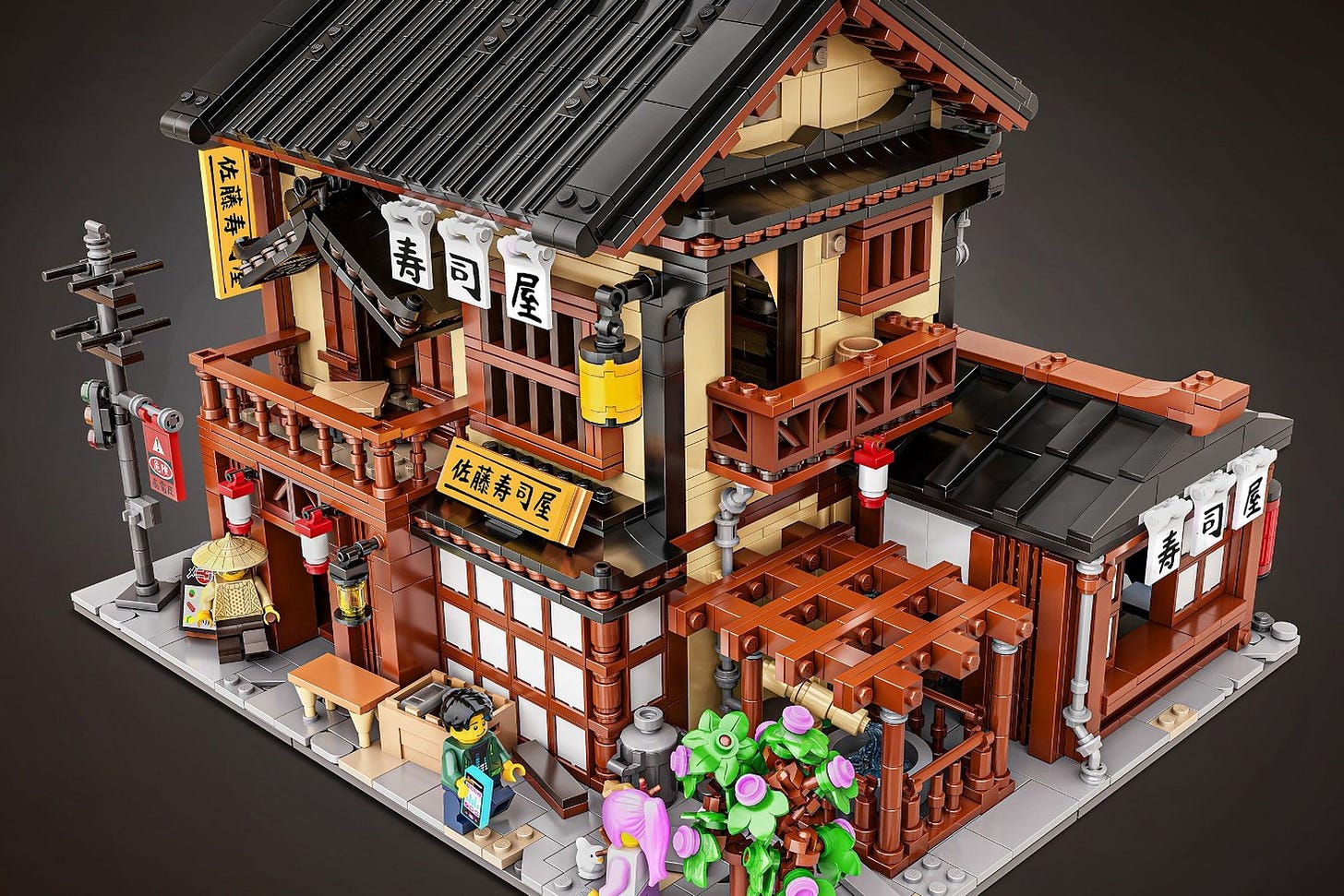Personal AIs, Disney Metaverse, Gemini, Design Systems, and Lego
Weekly Roundup of AI, Technology, and UX
If you haven’t followed us on Tiktok or Twitter, now is a great chance.
Here’s the latest news, resources, and use cases from the world of product, UX, AI and technology. Let’s go:
🤖 Personal AIs
🥽 Vision Pro
🧞♂️ Disney Metaverse
🔍 Gemini
👨💼 Design Systems
🧱 Lego
Podcast
Extending Human Potential: Creating Personal AIs with Founder Suman Kanuganti
In this episode, Kyle interviews Suman Kanuganti, co-founder and CEO of Personal.ai. Suman discusses his journey from an engineer with a robotics background to launching innovative ventures like Aira, assisting visually impaired individuals, and Personal AI, aimed at extending cognitive abilities through AI. The conversation explores the technology behind Personal.ai, its unique approach to personalizing user experiences, and the importance of data privacy. Suman also shares his insights on entrepreneurship in the AI space and the ethical considerations of AI development.
News and Useful Reads
Should You Buy a Vision Pro? A Guide
It will be fascinating to watch the Vision Pro and similar products. How much will these integrate into our lives in the coming years? We’re still in the very early stages, but I suspect we’ll see more and more. For now, it sounds like it’s a hit and miss experience.
The Vision Pro is a dream. I mean this in two senses:
It’s wonderful, it’s inspiring, it’s powerful. It is a machine built to create peak experiences. It brings your whole body into the digital world, so it can create high points in flow, in thought, in empathy, and in excitement.
We are spatial beings, and our ability to think, create, and build expands when we are able to do it in three dimensions. This is why the Vision Pro is a dream.
But it’s a dream in another sense: It’s frustrating. You often can’t quite do exactly what you want. It comes close, but the lack of great software limits what is possible to do with it today.
Disney invests $1.5B in Fortnite maker Epic Games to build a persistent game universe
Disney is coming building out a Disney metaverse, just don’t call it that. But if anyone can really push it forward, it’s definitely Disney and Epic Games.
In our new relationship with Epic Games, we’re creating a transformational games and entertainment universe that integrates Disney’s world-class storytelling into Epic’s cultural phenomenon Fortnite, enabling consumers to play, watch, create, and shop for both digital and physical goods. This marks Disney’s biggest entry ever into the world of video games, and offers significant opportunities for growth and expansion. The new immersive universe will unleash their own creativity and experience the Disney stories that they love in groundbreaking new ways.
Bard becomes Gemini
Google Bard is now officially Gemini. And you can get the Gemini Advanced experience for $20 a month, similar to ChatGPT. If you’re already on a Google One plan, though, it looks like it is messy to switch over, so some of us will have to wait until they figure all that out.
Design systems for products: ecosystem of design systems
This series of articles is a thoughtful exploration of design systems—the tools we use for creating useful products. It’s not just about the interface, but the entire system we create within our company and our team to develop something. It’s easy to forget that what we see at the end is just the last step of a much bigger system.
A design system for (digital) product inserts itself at the moment between requirements gathering and solution definition, when teams are exploring the conceptual user journeys, flows and logic — the foundational elements preceding the translation into tangible interfaces.
Other Interesting Finds
Lego’s next limited-edition sets could include an Elven Castle and this Sushi Restaurant
I’m a big Lego fan. If you see my Tiktoks or my podcast, you’ll see plenty of Lego builds in the background. And I love that builders can create their own ideas, submit them to the community, and eventually they can become actual sets with the creators getting part of the revenue. It’s my goal to one day do that.
On Wednesday, Lego sold 30,000 copies of a Lego castle designed by a fan — the Mountain Fortress — earning him half a million dollars for his work. For a while, the company’s website was flattened under the load, and my Verge story about these fan-designed sets was pretty popular, too.





